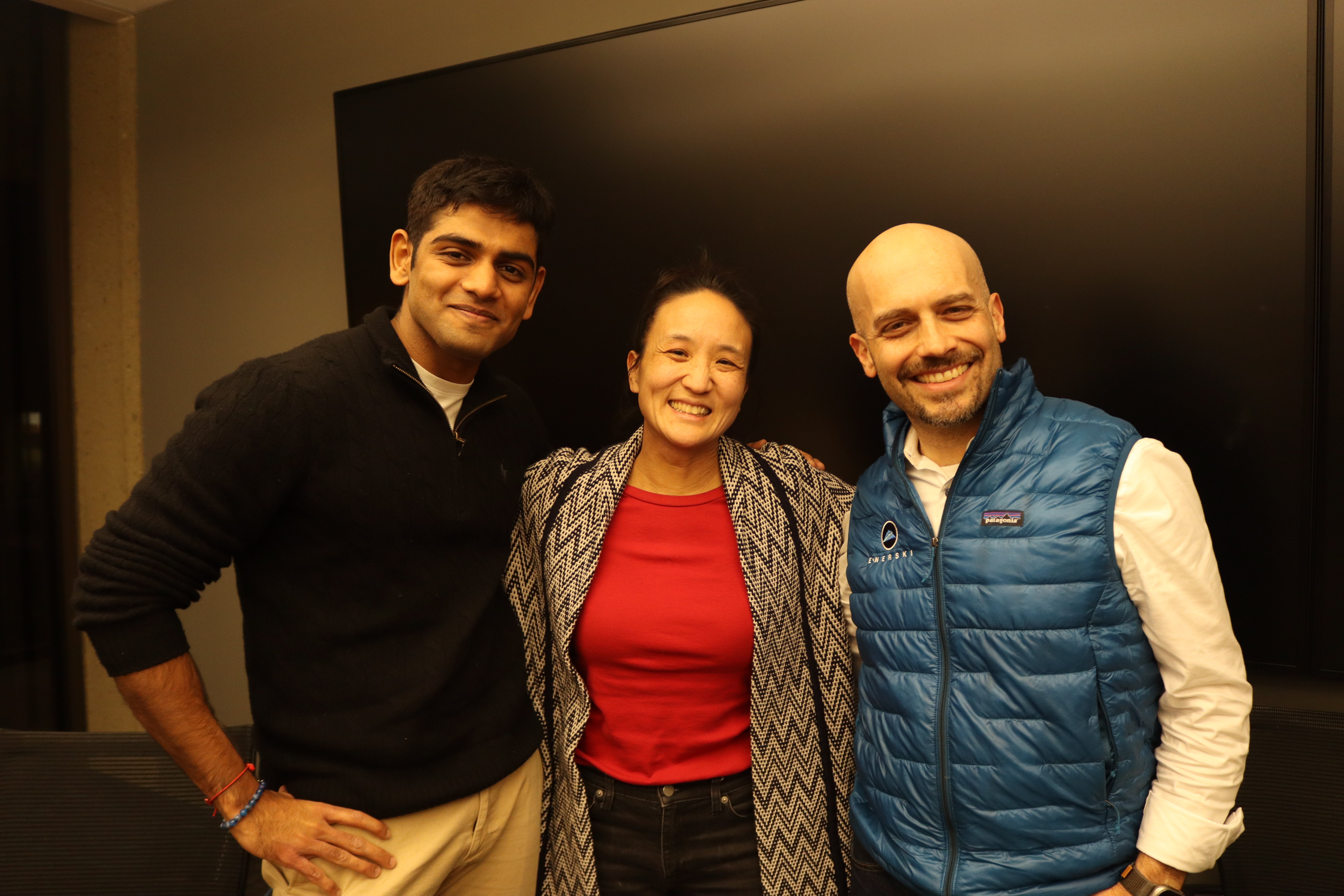From decreasing dependence on petroleum to decarbonizing the ocean, innovations at the intersection of deep tech and sustainability may be the future of entrepreneurship. Undergraduates and graduate students alike discussed these opportunities, as well as the challenges of deep tech startups, with leaders in the field at a Wednesday Stanford Energy Club (SEC) event entitled, “Fail Fast, Scale Smart.”
The conversation featured two venture capitalists (VCs) who invest in technologies aiming to shape the future of sustainability: Joshua Posamentier, Managing Partner at Congruent Ventures, and Pae Wu, General Partner at SOSV and Chief Scientist at IndieBio.
Rohan Parekh M.S. ’25, president of SEC, said bringing students together with leading investors in deep tech gives students the opportunity to learn about the industry from both the founder and venture perspectives while forging future relationships with the seasoned investors.
“I’ve seen really great ideas hit the ground because they didn’t have the right resources or didn’t know which resources to go after, and Stanford has so many,” Parekh said.
Venture capitalists like Posamentier and Wu look for technologies that can be fully proven out in smaller increments because of the dangers that come with losing sight of unit economics.
According to Parekh, some Ph.D. students’ deep focus on their research and the technology being developed can result in them losing sight of the principles of unit economics that are so crucial to pursuing the technology, according to Parekh.
“If companies take huge amounts of investment but the unit economics don’t make sense, there ends up being no customer for the product,” Wu said.
The new technologies themselves almost always work, according to Posamentier — it’s usually misunderstanding the business aspects that causes companies to fail. Investors look for scalability and a product that can stand on its own economically.
“We want to see things that can grow organically,” Posamentier said. He said some of the most successful companies solve key problems and then incrementally add features to the product for years. Often the product ends up being a different product from what was originally invested in.
For example, Wu said she invested in a stem cell company and six months later the technology failed, but the team subsequently pivoted and became hugely successful in sustainability issues.
“Every year we do a handful of broad thesis development efforts — last year we did ocean decarbonization focused on decarbonizing big shipping, a few years back we worked on transitioning away from metal minerals in mining, an onshore wind thesis and another water thesis surrounding agriculture is coming up,” Wu said.
Wu believes there is no shortage of problems to be solved.
While VCs invest early on, benefits are rarely reaped quickly in the realm of deep tech. Much of Wednesday’s conversation surrounded how to navigate the inherent risk of the valley of death phase of product development.
According to Pae, the reality is that most investors believe that once they have gotten comfortable enough with your technology it will work. The real question is based on obtaining evidence at each small step of the process that a customer will be interested in the product once it gets to scale.
“It’s easy to dismiss the sales part of the process if you love your technology. But if you try to jump steps in the sales process, that’s where that valley of death happens, and not because your tech is delayed,” Wu said.
According to Parekh, overcoming the valley of death is essential because we need a sustainable climate to live in.
“If you want to survive in the long run, you have to tackle these issues at some point,” said Parekh.
